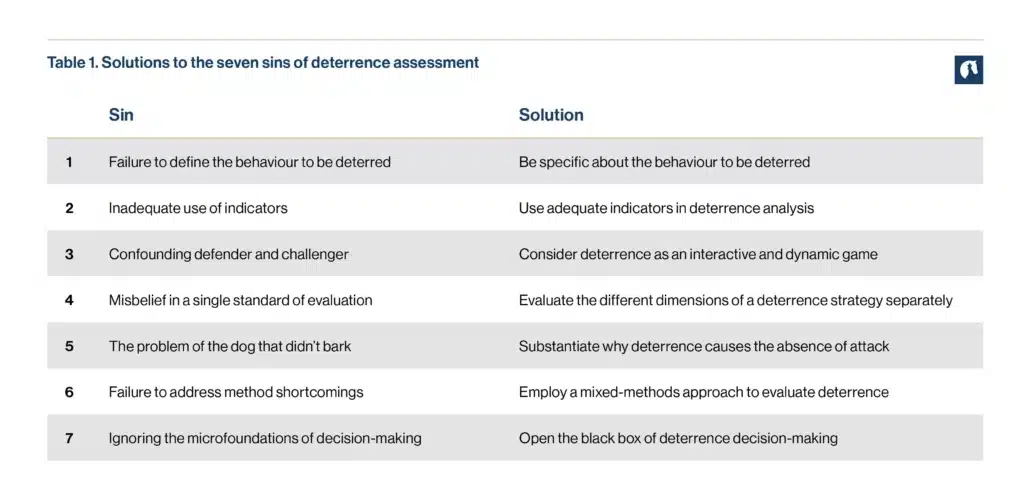Do NATO’s deterrence policies really have an impact on Russian behaviour? As miscalculation fears rise after a Russian fighter jet collides with a US drone over the Black Sea, how do we truly know if we understand our opponent’s signals – and they understand ours? After all, deterrence is not possible if we do not understand each other’s signals: not only must we understand our adversary, but our adversary must also understand us.
Although the logic of deterrence and its real-world applications may appear intuitively simple and elegant, measuring its effectiveness is much more challenging. In fact, deterrence policymakers can be compared to dancers in the dark: they may know their own deterrence moves, but they can only surmise what the intentions of their counterparts are, and how their deterrence measures shape adversarial behaviour. To this end, literature on evaluating deterrence is scarce, and what is available is rife with methodological, theoretical, and empirical inadequacies.
However, the Russian invasion of Ukraine and increased global geopolitical competition has brought deterrence back to the forefront of Western strategic discourse, meaning that measuring its effectiveness has once again become a matter of utmost importance. At the same time, scholars and strategists are contemplating whether and how basic deterrence concepts are holding up when applied to so-called hybrid threats.
Therefore, to fill current research gap and respond to the pressing demand to design effective deterrence policies, this new HCSS report by Tim Sweijs and Mattia Bertolini identifies seven sins of deterrence assessment. The authors subsequently respond to these seven challenges with seven maxims for deterrence assessments. By heeding these maxims listed deterrence analysts can increase the validity of their deterrence assessments and provide policymakers with a toolkit to measure, evaluate, and improve their deterrence strategies based on sound analysis.

Authors: Tim Sweijs & Mattia Bertolini
The research for and production of this report has been conducted within the PROGRESS research framework agreement. Responsibility for the contents and for the opinions expressed, rests solely with the authors and does not constitute, nor should it be construed as, an endorsement by the Netherlands Ministries of Foreign Affairs and Defence.



